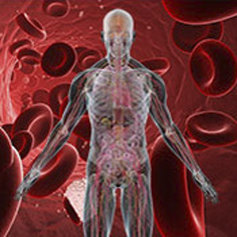Preventing the Abuse of Synthetics

Of course, preventing the abuse of synthetics really means preventing the abuse of any drug. Drug abuse nowadays starts early, so explaining the dangers, in its very simplest terms, must start even earlier, before the teenaged years. If your child is already in his teens, start anyway! It is never too late to improve the situation through education.
It is likely that at some point your child will be surrounded by people drinking or using drugs and being offered drugs. He must know to expect this, he must expect his some of his peers (the more negative and insecure ones) to ‘ridicule’ him if he refuses to join in. He must know in his heart that he must walk out of this environment if he is to stay sober. It’s a matter of personal integrity. He must truly understand the damage that can occur if drugs are abused, all the way up to and including overdose and addiction. Obviously, this information must be shared on a gentle gradient in the early years.
Note that this may mean that he (or she) may have to call you for a ride in the middle of the night, or ask for help getting his intoxicated friends home. To keep your child safe, you must be willing to step in at any time, with a minimum of complaining. Naturally, you will want to take the matter up when everyone is home safely and work out how to prevent this situation from happening again. It MUST be safe for your son or daughter to call you when they are in trouble—ANY time of the day or night.
One of the essential messages to communicate is that both parents are united in their opposition to any kind of substance use until after the child is 21 years of age, including alcohol. This is an important message whether the family all lives in the same household or not. According to the National Center on Drug Addiction and Substance Abuse, if a person can avoid drinking or using drugs until after he or she turns 21, the person is much, much less likely to ever develop an addiction to drugs or alcohol.
Parents must set a good example of sobriety as well. If a parent says that drug abuse is not acceptable but then drinks frequently or uses prescription drugs that could be avoided, this mixed message will undermine the parent’s desire to keep the child sober.
Of course, if the parent is using illicit drugs or abusing prescription drugs or alcohol, the best thing he could do to keep the child sober is to get himself cleaned up, followed by an educating his child.

Synthetics are seldom the first drug a child abuses. A parent may choose to begin educating a child on the problems caused by drug abuse in general, then move on to the primary drugs that youth start with—marijuana, alcohol and prescription drugs, and then explain the specific dangers of synthetics. It is most likely that a young person will run into these drugs at parties, music festivals or dance clubs. But if he or she runs around with older youth who are living risky lifestyles, exposure to these dangerous synthetics may come earlier.
Educating Your Children
-
Learn about your subject. For more information on synthetics, you can visit:
-
Set a good time to talk to your children when you will not be interrupted by telephones, television or visitors. The best effect will be created if you cover this subject a little at a time, which means you will need several conversations to get all the way through this information. Make very sure that after the first couple of conversations, you come back to the topic again until you have covered all the points included here.
-
Explain that children or adults he knows could start using drugs. Explain why these people may start, for example, he (or she) may have personal problems or stresses he does not know how to handle and may see drugs as a way to escape. He may have been bored or wanted more excitement in his life. He may have felt that he would be more popular and accepted by others if he joined others in using synthetic drugs. He may have difficulties or weaknesses that drugs seem to make go away, like problems talking to the opposite sex, fears, anxieties or depression. Synthetics may offer a complete change from the usual reality he lives with and may seem exciting. They are, of course, not solving anything but only camouflaging any difficulty. They are, however, addictive and can create severe mental and physical problems and even death, in some circumstances. If drugs make these problems seem to go away, the child may see value in repeating the abuse again and again, which can kick off intense cravings that trap the person into a pattern of drug abuse.
- Explain that you want to help your children stay sober, that if they find themselves tempted or they do use drugs or drink, they should come to you immediately for help. You must be prepared to help without criticism if they are to feel safe coming to you.
- Go over the effects of different forms of synthetics and what kind of damage they cause, including physical, mental and financial harm, along with destroying relationships and trust. Invite them to ask questions or voice observations or opinions. Be realistic and don’t exaggerate the harm. If you say one thing and they see something else in life, they may discount everything you say.
- Describe the way that peer pressure to use drugs or drink can be very subtle, feeling like nothing more than the desire to join in the fun everyone else seems to be having.
- Talk over the way that drug abuse in movies, television shows, music videos or YouTube videos might make use of drugs like Ecstasy, ketamine, salvia, BZP or other drugs use look glamorous or fun. Point out that most movies featuring synthetics and other types of drugs often omit the worst consequences. Explain the way that moral and physical decline, overdoses, arrests and other harm can occur with abuse of synthetics.
- Let them know that drug residues are stored in the body and thus the lingering damage of drug abuse can stay with them for a long period of time, no one really knows how long. This damage can include effects like cloudy, slow thinking, emotional shutoff, depression, difficulty learning or problem-solving, even lasting personality changes like paranoia or anxiety.

- Explain that the abuse of any drug or alcohol can damage or destroy a person’s ability to achieve their goals, even in one night due to an accident or overdose.
- Help them envision their goals in life, pointing out that making decisions that help them achieve their goals are sort of antidotes to wanting to use drugs. If they are not sure what goals appeal to them, you may have to give them time to think this point over. Remember to come back to it. Once you know what they want to achieve, compliment and reward them for their achievements leading up to these goals. Remember, however, that your child may go through many changing goals as they grow up. The exact goal, as long as it is positive, is much less important than having a goal, any goal of one’s own choice.
- Above all, do your best to make it safe for them to talk to you about their friends using drugs or alcohol, about their own substance abuse or concerns.
 ®
®